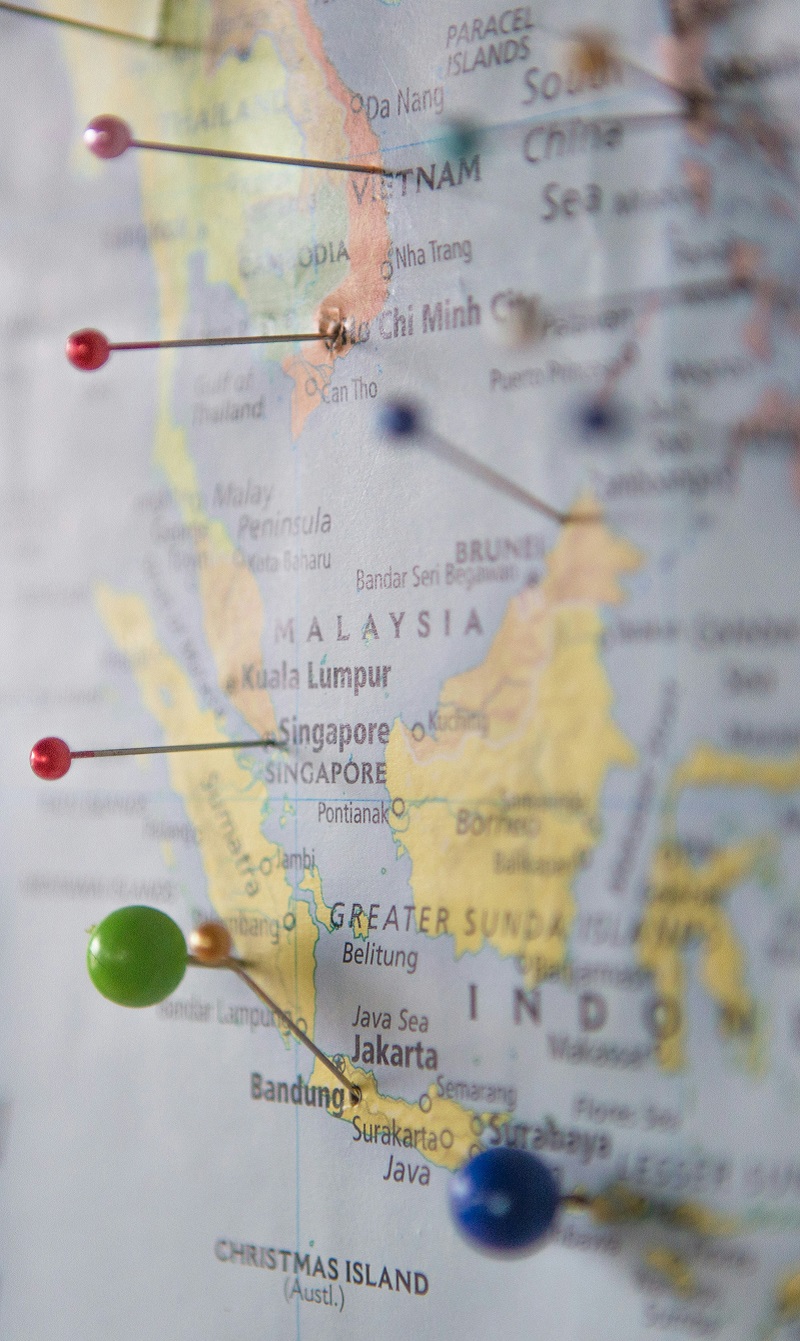Transforming the global economic order
Halal is big business in today’s world. The growing Muslim population worldwide, combined with the increasing demand for halal products from non-Muslims, has fuelled the rapid development of the halal industries, including food, clothing, finance and tourism.
A study by Pew Research Centre has found that the world’s Muslim population will grow at 35 percent over the next decade, which is around double the rate of the non- Muslim population. This will bring the Muslim population from 1.6 billion in 2010 to 2.2 billion by 2030.
However, according to a report ‘The Halal Economy: Huge Potential for Islamic Finance’ by the Malaysia International Islamic Financial Centre (MIFC), the global halal economy and the Islamic finance industry are natural economic partners, but are far from fulfilling their combined potential for a holistic Islamic economy. The global expansion of the Islamic economy can be tremendously enhanced by an integration between the halal industry and global Islamic finance, ensuring shariah-compliance not only in delivering the end-products to consumers, but also in the provision of funding options.
Valued at approximately USD 3.2 trillion in 2012, the halal sector is forecasted to increase to USD 6.4 trillion by 2018.
Halal is the future
The global halal economy is poised to grow in leaps and bounds over the next few years. Valued at approximately USD 3.2 trillion in 2012, the halal sector is forecasted to increase to USD 6.4 trillion by 2018. The halal food market alone is an indicator of the industry’s potential. It is estimated that the halal food sector is worth an estimated 16 per cent of the total global food industry.
Thomson Reuters has predicted that the Muslim food market will be worth USD 1,626 billion by 2018, cosmetics USD 39 billion and pharmaceuticals USD 97 billion. Recognising the potential in the rapidly growing Muslim population, and the increasing demand for halal alternatives in various retail sectors, Northeast Asian markets like Japan, China and South Korea are already jumping on the bandwagon and opening up their markets for Muslim capital and tourists.
Europe is not to be left behind, as is evident from the UK and Luxembourg’s efforts to develop their financial centres as regional hubs for Islamic finance. Countries like Spain are banking on their cultural heritage and thriving tourist trade to capitalise on halal food and tourism – Spain even hosted the inaugural Halal Tourism Conference 2014 from 22-23 September. In this race, the winners will be those who can gain the trust of a growing base of consumers – Muslims and non-Muslims alike – who are increasingly vigilant, discerning and sophisticated in their demands.
Growth of Islamic financing
At the WIEF Pyeongchang Roundtable 2014 in Gangwon, Republic of Korea, WIEF Foundation Chairman Tun Musa Hitam gave a rousing testimony to the role that Islamic finance can play in meeting the emerging needs of the world economy. ‘2014 has seen a major transformation in the global economic order with trading relationships fast evolving, and many countries entering a new phase of economic development,’
Scarred by recent financial crises, countries are now seeking the development of an economy that is sustainable and inclusive. According to Tun Musa, there is a great deal that can be drawn from the Islamic philosophy, which includes the ethical and legal principles of Islamic economy, to help the world’s nations attain greater stability and sustainability. The global Islamic finance industry was valued at approximately USD 1.9 trillion in the first half of 2014, and had been estimated to surpass USD 2 trillion by the end of 2014.
There is no better time to capitalise on the rapid growth of Islamic finance. The Islamic economies and financial institutions are in a strong position to cater to the halal industry – not only due to their large asset size, but also leveraging on the fact that they can provide shariah-compliant financing.
Completing the puzzle with Islamic financing
‘A halal economy ultimately benefits the entire global community,’ MIFC’s report on The Halal Economy pointed out. ‘Islamic values have a universal appeal making many halal products and services equally attractive to non- Muslim consumers…where the demand for ethical and socially-conscious product offerings is on the rise.’
A truly holistic halal economy can only be achieved if shariah compliance prevails in the entire product/ service supply chain of an organisation. As MIFC pointed out, shariah-compliant financial services can ensure end-to-end shariah compliance in halal suppliers’ operations, while providing them with alternative and ethical funding options. Many halal suppliers and companies have been deemed non- compliant by shariah screening bodies due to their usage of conventional financing facilities. There is a gap in the current funding landscape for halal industries, and it is one that can be filled by Islamic financial institutions offering products and services such as trade finance, risk management/ hedging products, capital expenditure funds, liquidity management, working capital needs and other corporate financial solutions.
The integration of halal industries and Islamic financing produces a win-win situation for all. As MIFC aptly phrased it, ‘For halal industries, shariah-compliant financing completes their operational integrity and unlocks new sources of ethical and economically viable funding. For Islamic finance, shariah-compliant companies get enlisted on the ethical indices series which are widely sought-after as alternative asset classes for investments in the world markets.’
WIEF plays matchmaking role
In line with WIEF’s objective of fostering business collaboration amongst Muslim countries, as well as with the rest of the world, the Foundation prioritises initiatives to advocate for the integration of the world halal industry and global Islamic finance, especially in bringing “new” markets and potential investors together.
WIEF left its first footprint in East Asia with the WIEF Pyeongchang Roundtable 2014, which also marked South Korea’s first step into entering the Islamic economy. This Roundtable was held to support Gangwon’s major leap into Islamic finance, halal tourism, and halal business by assembling a stellar line-up of top industry leaders to lead a series of discussions, and providing an international platform for the business community to convene, exchange expertise and establish partnerships.
The Roundtable offered international business leaders and investors an in-depth understanding on Gangwon’s conducive environment for business and investments, especially for those who are more inclined towards Islamic values-driven products and services. It was a platform to discuss the halal potential of Gangwon’s food industry, as well as the province’s major development projects, and to see how Islamic financing could come in to support these investments and to increase the halal prospects.
Notably, the Roundtable also explored the challenges and opportunities in establishing a financial co-operation system between East Asia and the Middle East to promote inter-regional trade and investments. WIEF is also looking towards unlocking more Muslim markets in Europe with the WIEF Córdoba Roundtable in Spain from 23-24 March 2015. WIEF will bring business leaders together to explore the city’s investment opportunities. Spain’s thriving tourism sector, well- developed infrastructure and emerging halal industry offer attractive trade opportunities – not least of which is the development of halal tourism to cater for the influx of Muslim tourists to Europe.
East Asia and Europe are not the only hot spots for making breakthroughs in the halal industries – countries like Brazil, New Zealand, and Thailand are also emerging markets ripe to be explored. Increasing the synergy between the global halal industry and the Islamic finance industry will spur the creation of new halal businesses and the expansion of halal trade into these new markets.
Ultimately, the liberalisation of the halal and Islamic sectors should not be seen as competition for traditional Muslim markets, but channels through which we can all share in the vision of achieving peace and prosperity through business and economic collaboration.





